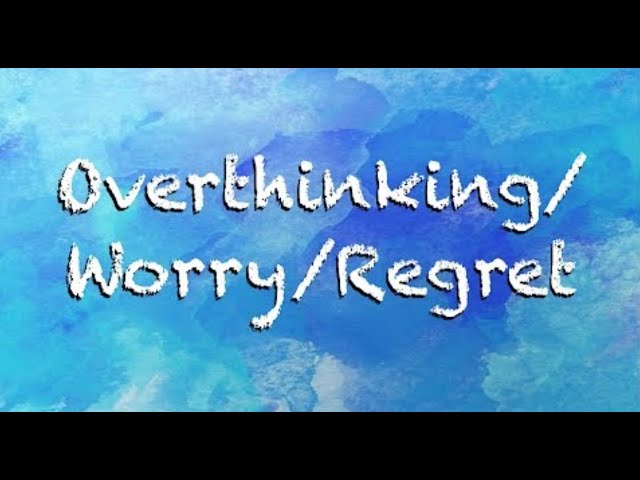Overthinking / Worry / Regret

Main Ideas
- 🤔 Overthinking occurs when individuals excessively analyze potential outcomes of a decision before taking action, often leading to indecision and paralysis.
- 😟 Worrying involves fretting about the consequences of a decision that has already been made, causing unnecessary stress and anxiety.
- 😔 Regret stems from reflecting on past decisions and realizing missed opportunities or negative outcomes, leading to prolonged feelings of remorse.
- 🧠 Overthinking is common among intelligent individuals who can foresee multiple potential outcomes, which can overwhelm and hinder decision-making.
- ⚖️ Worry and regret represent different stages of decision-making: worry occurs after a decision, while regret arises from reflecting on past choices.
- 💡 Controlling attention and focusing on productive activities can help mitigate overthinking, worry, and regret, preventing them from consuming one’s mental energy.
- 📚 Engaging in hobbies or interests and redirecting attention away from negative thoughts can aid in moving past overthinking, worry, and regret.
- 🚀 Embracing challenges and focusing on the present moment rather than dwelling on the past or worrying about the future is crucial for personal growth and mental well-being.
The Dangers of Overthinking, Worry, and Regret
Have you ever found yourself stuck in a cycle of overthinking? Do you constantly worry about the decisions you’ve made or regret past actions? If so, you’re not alone. In this blog, we will explore the harmful effects of overthinking, worry, and regret, and discuss strategies to overcome these challenges.
The Problem of Overthinking
Overthinking is a common problem, especially among smart individuals. When faced with a decision, smart people tend to consider all possible outcomes, which can lead to analysis paralysis. They see multiple angles and potential repercussions, making it difficult to make a definitive choice. This overthinking can quickly become counterproductive and prevent you from taking any action at all.
The Consequences of Worry
Once a decision has been made, worry often takes over. You start thinking about all the negative events that may result from your choice, constantly questioning if it was the right decision. This worry can consume your thoughts and cause unnecessary stress and anxiety, even though the decision has already been made and is out of your control.
The Power of Regret
Regret is perhaps the most painful emotion that accompanies decision-making. It is the realization that you made the wrong choice, knowing that you had all the information and opportunities to make the right decision, but didn’t. Regret can haunt you for years, gnawing at your happiness and preventing you from moving forward.
Understanding the Common Thread
Overthinking, worry, and regret may seem like separate problems, but they share a common root: a lack of discipline in controlling our attention. When we allow our thoughts to run rampant, focusing on past decisions or potential outcomes, we lose control over our minds and jeopardize our overall well-being.
The Importance of Discipline
Controlling our attention is crucial for maintaining a healthy mindset. Rather than allowing ourselves to indulge in overthinking, worry, or regret, we need to redirect our attention to more productive activities. Engaging in hobbies, reading books, or pursuing new interests can help absorb our attention and prevent us from getting caught in a cycle of negative thinking.
The Need for Educational Reform
The education system often fails to teach smart individuals how to control their thoughts and manage their powerful minds. We need to recognize that not everyone is the same and that some individuals require specific guidance. By providing strategies to control attention and cultivate discipline, we can help smart students avoid the pitfalls of overthinking, worry, and regret.
Embracing Forgetfulness
One effective way to break free from the grip of overthinking, worry, and regret is to embrace forgetfulness. Instead of dwelling on past decisions or problems, we can choose to let go and focus on the present. By getting interested in new things and redirecting our attention, we can avoid the feeling of powerlessness that comes with endlessly thinking about things we cannot change.
Conclusion
Overthinking, worry, and regret can be detrimental to our mental well-being. However, by recognizing the common thread that binds these challenges and implementing strategies to control our attention, we can break free from their grasp. Let go of the past, focus on the present, and embrace new interests that absorb your attention. By doing so, you can regain control and live a more fulfilling life, free from the burdens of overthinking, worry, and regret.






